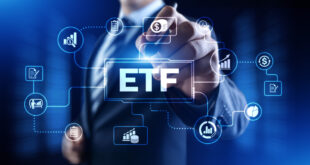On May 25th, 2018 another protection regulation produced results in Europe. The GDPR or General Data Protection Regulation, and it gives EU residents command over who controls their own information and over what occurs with it. It’s the motivation behind why you are barraged with popups requesting that your consent accumulate and handle your own information. It’s the very explanation that email bulletins inquire as to whether you’re actually intrigued by them and why a ton of organizations are abruptly making it simpler to snatch a duplicate of the information they have on you.
Organizations from everywhere the world are working rapidly to ensure they are GDPR consistent on the grounds that in any case, they face the gamble of paying weighty fines. Notwithstanding, Blockchain innovation is making a huge difference so what happens when a blockchain contains individual information? The issue with the information on blockchains is that it is:
Open
Straightforward
Changeless ie. information put away on a blockchain can’t be changed or deleted.
These are properties of this innovation that can’t be changed and simultaneously, doesn’t look excellent for implementing protection.
Understanding the General Data Protection Regulation
Before we jump into the compliances of the GDPR we should comprehend a couple of usually utilized phrasings:
Information Controllers – According to EU regulation, organizations that store your information are known as information regulators. Normal models would be Facebook, Google, Apple and so on
Information Processors – Companies that work with your information to break down it are known as information processors. For instance, Google Analytics, Moz Analytics, Socialblade and so on
As a rule, the Data regulator and the Data processor is a similar element, be that as it may, the weight of conforming to the GDPR lies with the Data regulator. How about we additionally make a note here, that the GDPR is just in play when the individual information of EU residents are involved. Any organization putting away data of EU residents need to follow the guideline, including Facebook or Apple.
EU regulation expresses that individual information is any data connecting with a distinguished or recognizable normal individual (‘information subject’); a recognizable regular individual is one who can be distinguished, straightforwardly or by implication, specifically by reference to an identifier, for example, a name, an ID number, area information, an internet based identifier or to at least one elements explicit to the physical, physiological, hereditary, mental, financial, social or social character of that normal individual. This is a wide definition, which basically implies any information, for example, an IP address, a Bitcoin wallet address, a Visa or any trade, assuming that it tends to be straightforwardly or by implication connected to you, it very well may be characterized as private information.
The 3 GDPR Articles that contention with Blockchain properties
There are three articles in GDPR to be specific Articles, 16,17 and 18 that cause problems for organizations that are wanting to utilize a disseminated record network for doing their business.
Article 16: This article in the GDPR permits EU residents to address or change information an information regulator has on you. Not exclusively would you be able to change existing information that they have on you yet you can likewise add new information assuming you feel that the current information is mistaken or fragmented. The issue is, in a circulated network, adding new information isn’t an issue however transforming it – is.
Article 17: This article alludes to “one side to be neglected”. It’s unrealistic to erase information from a blockchain and accordingly this article quickly clashes with the information assurance guideline.
Article 18: This article alludes to “one side to confine handling”. Fundamentally, this keeps organizations from utilizing your information assuming the information is erroneous or then again on the off chance that it was illicitly gathered.
One of the central issues ofa blockchain is the way that they are totally open, so anybody can get a duplicate of your information and do anything they need with it. In this way, you don’t have any command over who is handling your information.
Potential answers for conjunction!
Encryption – A famous arrangement is scramble individual information prior to putting away it on an appropriated network. And that implies, just those with the unscrambling key approach the information. The second this key is annihilated, the information becomes futile. This is satisfactory in certain nations like the UK nonetheless, there are other people who contend that solid encryption is as yet reversible. With progresses in registering, it’s inevitable when encryption could be broken at quicker rates and the individual information would be accessible once more. The discussion for encryption actually seethes on.
 Trades Crypto Currency – The Best Digital Currencies Ideas – Get Insights with
Trades Crypto Currency – The Best Digital Currencies Ideas – Get Insights with




